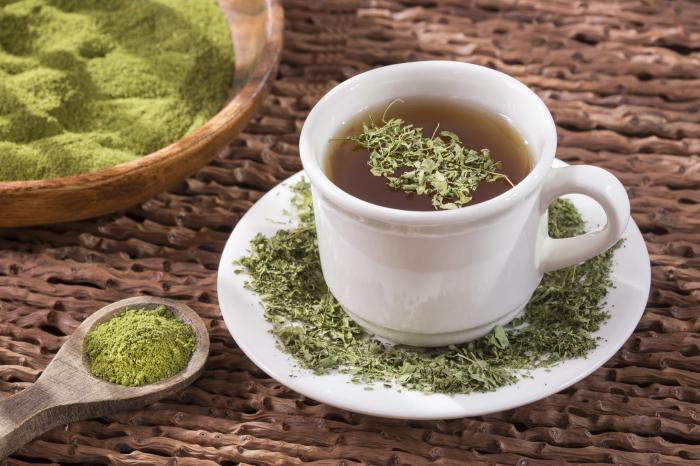Breastfeeding is a rewarding experience, but it can also be challenging. Many mothers look for ways to enhance their breastfeeding journey. Moringa tea has gained popularity for its potential health benefits. In this article, we will explore the benefits of moringa tea for breastfeeding mothers and how it can support their health and milk production.
What is Moringa?
Moringa, also known as the drumstick tree, is a plant native to parts of Africa and Asia. Its leaves, pods, and seeds are rich in nutrients. Moringa leaves are particularly known for their high levels of vitamins, minerals, and antioxidants. This superfood has been used for centuries in traditional medicine. Today, it is available in various forms, including tea, powder, and capsules.
Nutritional Profile of Moringa
Moringa leaves are packed with essential nutrients. They contain:
Vitamins: Moringa is rich in vitamins A, C, and E. These vitamins are crucial for immune function and skin health.
Minerals: Moringa leaves are high in calcium, iron, and potassium. These minerals are important for bone health and overall wellness.
Proteins: Moringa is an excellent source of plant-based protein. This can be especially beneficial for breastfeeding mothers.
Antioxidants: Moringa is loaded with antioxidants, which help fight free radicals and reduce oxidative stress.
These nutrients make moringa a powerful addition to a breastfeeding mother’s diet.
Benefits of Moringa Tea for Breastfeeding Mothers
1. Supports Milk Production
One of the most significant benefits of moringa tea is its ability to support milk production. Moringa has galactagogue properties, meaning it can help increase breast milk supply. Studies suggest that consuming moringa may lead to an increase in both the quantity and quality of breast milk. This can be particularly helpful for mothers who may struggle with low milk supply.
2. Rich in Nutrients
Moringa tea is a nutrient-dense beverage. Drinking moringa tea provides essential vitamins and minerals that breastfeeding mothers need. These nutrients support the mother’s overall health and well-being. Additionally, the nutrients in moringa tea can enhance the nutritional value of breast milk. This benefits the baby by providing essential nutrients for growth and development.
3. Boosts Energy Levels
Breastfeeding can be exhausting. Many mothers feel fatigued, especially during the early weeks. Moringa tea can help boost energy levels. The high iron content in moringa can combat fatigue and improve overall vitality. This energy boost can help mothers stay active and engaged in their daily activities, making the breastfeeding journey more enjoyable.
4. Enhances Immune Function
Breastfeeding mothers need a strong immune system to keep themselves and their babies healthy. Moringa is known for its immune-boosting properties. The antioxidants and vitamins in moringa help fight infections and inflammation. Drinking moringa tea regularly can support the immune system, reducing the risk of illness during breastfeeding.
5. Promotes Healthy Skin
The hormonal changes during breastfeeding can affect a mother’s skin. Moringa tea may help promote healthy skin due to its high levels of vitamins A and C. These vitamins are essential for skin health and can improve the skin’s appearance. Drinking moringa tea can provide hydration and nourishment, helping mothers feel more confident in their skin.
6. Aids Digestion
Moringa tea can also aid digestion. Breastfeeding mothers may experience digestive issues, such as bloating or constipation. The fiber content in moringa leaves promotes healthy digestion and regular bowel movements. Drinking moringa tea can help ease digestive discomfort and support gut health.
7. Balances Blood Sugar Levels
Maintaining stable blood sugar levels is essential for overall health. Moringa has been shown to help regulate blood sugar levels. This can be beneficial for breastfeeding mothers, especially those who may be at risk for postpartum diabetes. Consuming moringa tea can help stabilize energy levels and prevent sudden spikes or drops in blood sugar.
How to Prepare Moringa Tea
Preparing moringa tea is simple. Here’s how to make it:
Choose Moringa Leaves: You can use fresh moringa leaves or dried moringa leaf powder.
Boil Water: Bring water to a boil in a pot.
Add Moringa: Add a tablespoon of dried moringa leaves or powder to the boiling water.
Steep: Allow the tea to steep for 5 to 10 minutes.
Strain: If using leaves, strain the tea into a cup. If using powder, you can stir it well.
Add Flavor: Optionally, add honey or lemon for taste.
Enjoy: Drink the tea warm.
Moringa tea can be enjoyed once or twice a day, depending on personal preference.
Precautions and Considerations
While moringa tea has many benefits, it is essential to consume it in moderation. Here are some precautions:
Consult a Doctor: Always consult with a healthcare professional before adding any new supplements or herbs to your diet, especially during breastfeeding.
Allergies: Some individuals may be allergic to moringa. Monitor for any adverse reactions after consumption.
Dosage: Stick to recommended dosages. Excessive consumption may lead to gastrointestinal discomfort.
Balance with Diet: Moringa tea should complement a balanced diet, not replace whole foods.
See also: Is Turmeric Tea Good For Breastfeeding Mothers
Conclusion
Moringa tea is a valuable addition to a breastfeeding mother’s diet. Its numerous benefits, including increased milk production, boosted energy levels, and enhanced immune function, make it a powerful ally. The rich nutritional profile of moringa provides essential vitamins and minerals that support both mother and baby.
As with any supplement, it is crucial to consult a healthcare professional before starting moringa tea. With the right approach, moringa tea can enhance the breastfeeding experience, helping mothers thrive during this special time. By incorporating moringa tea into their daily routine, mothers can enjoy a range of health benefits that support their breastfeeding journey and overall well-being.
Related topics:


